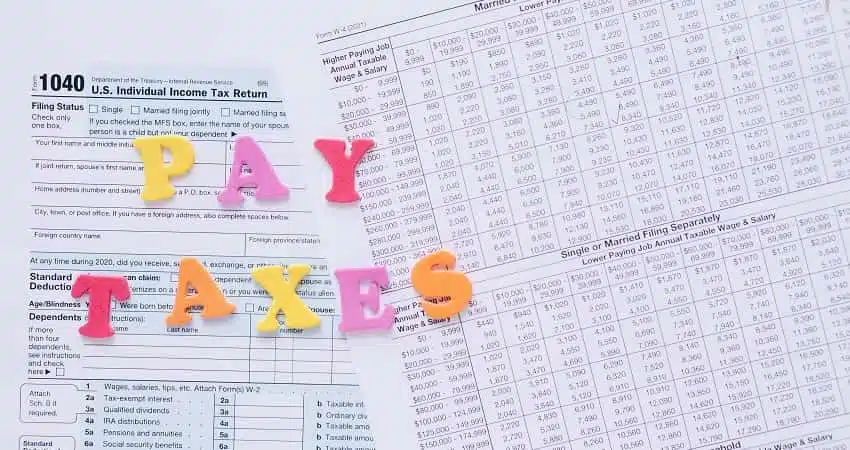Maximize Your Truck Driver Tax Deductions | Save Now!
Truck drivers keep America’s economy rolling, but when tax season arrives, too many haul away stress instead of savings. If you’re an owner-operator, you’ve earned the right to claim every dollar you’re owed – legally and confidently. This guide strips away the confusion, spotlighting proven truck driver tax deductions: meals, mileage, per diems, and even lesser-known write-offs like trailer leases and CB radio upgrades. We’ll map IRS rules with direct links to official guidelines, so you’re never lost in the fine print.
But saving money isn’t just about rules – it’s about strategy. We’ll share insider tips, like using logbook apps to track expenses and avoiding audit triggers. Ready to shift into high gear? Let’s turbocharge your refund and keep your finances rolling smoothly down the road.
Are truck drivers eligible for tax deductions?
Not every truck driver qualifies for write-offs – it all depends on how you earn your paycheck. Owner-operators (self-employed drivers who own their rigs) can claim truck driver tax deductions for business costs like fuel, repairs, and meals. But if you’re a company driver with a W-2, the rules shift gears: the IRS no longer lets employees deduct work-related travel expenses.
Here’s the breakdown:
- Self-employed drivers: Deduct business expenses on Schedule C (think meals, lodging, truck maintenance).
- Company drivers: Most deductions vanished after 2018 tax reforms. Your employer likely reimburses costs like tolls or permits.
Need clarity? The IRS outlines independent contractor criteria here. Unsure where you stand? H&S Accounting & Tax Services specializes in truck driver tax deductions and can help clarify your status.
Top truck driver tax deductions you can’t afford to miss
Truck driver tax deductions aren’t just about fuel and tires – they’re your secret weapon to slash your tax bill. Here’s what the IRS lets you claim:
- Meals: Deduct 80% of food costs (vs. 50% for other jobs) using receipts or the $80/day per diem.
- Mileage & travel: Tolls, parking, lodging, and even shower fees at truck stops.
- Vehicle costs: Repairs, insurance, cleaning supplies, and depreciation.
- Licenses & gear: CDL fees, medical exams, safety equipment, and union dues.

Actual expenses vs. standard per diem: Which saves more?
| Actual expenses | Standard per diem |
|---|---|
| Track every meal receipt | Use flat IRS rate ($80/day) |
| Higher deduction potential | Less paperwork, faster claims |
| Best for meticulous planners | Ideal for drivers on tight schedules |
Example: A 5-day haul using per diem nets a $320 deduction (5daysx80 x 80%). Actual receipts could save more if you spend over $100/day.
The IRS updates per diem rates annually – check their 2024 guidelines to stay current. For tricky calculations, H&S Accounting & Tax Services specializes in maximizing truck driver tax deductions.
How to claim vehicle costs like a pro
Your truck isn’t just a vehicle – it’s a deductible asset. To unlock truck driver tax deductions for rig-related costs, focus on expenses tied directly to your business:
- Repairs & maintenance: Oil changes, brake repairs, and tire replacements.
- Insurance premiums: Liability, cargo, and collision coverage.
- Depreciation: Deduct a portion of your truck’s value each year (see IRS Publication 946).
- Cleaning & upkeep: Soaps, wipers, and even CB radio repairs.
Key rule: You can’t claim the standard mileage rate for commercial trucks. Instead, track actual expenses and deduct the business-use percentage. For example, if 85% of your driving is work-related, write off 85% of costs.
Don’t overlook the heavy highway vehicle use tax (Form 2290) – it’s fully deductible. The IRS provides a step-by-step guide for filing.
Pro Tip: Use apps like MileIQ to log trips and automatically split business/personal use. For complex claims, H&S Accounting & Tax Services ensures you never miss a write-off.
Medical expenses & license fees: Hidden deductions
Think your medical bills and CDL costs are just out-of-pocket headaches? Think again. Truck driver tax deductions cover work-related health and licensing fees most drivers forget to claim.
Here’s what qualifies:
- Medical exams: DOT physicals, drug tests, and vision screenings required for your job.
- Safety gear: Gloves, steel-toe boots, and OSHA-approved eyewear.
- Licenses & training: CDL renewals, hazmat endorsements, and mandatory safety courses.
- Union/association fees: Membership dues for groups like OOIDA or Teamsters.
Example: A $150 DOT physical exam isn’t just a job requirement – it’s a $150 deduction. Same goes for $300 CDL renewal fees.
Keep this in mind:
- Only expenses unreimbursed by your employer count.
- Save receipts and note how each cost ties to your work (e.g., “steel-toe boots for loading cargo”).
The IRS requires documentation for medical deductions – learn more in Publication 502. For help maximizing these write-offs, H&S Accounting and Tax Services knows the rules inside out.
The standard deduction vs. itemizing: What truckers need to know
Let’s clear the confusion: itemizing (using Schedule A for personal deductions) has nothing to do with truck-related business expenses. Here’s how it works:
- Standard deduction (2024): Reduces taxable income automatically ($14,600 for single filers, $29,200 for married joint filers).
- Itemizing (Schedule A): Only applies to personal deductions like mortgage interest or medical bills – not business costs.
For truck driver tax deductions, you’ll file Schedule C instead. This form lets owner-operators deduct rig repairs, meals, and other business expenses regardless of whether you take the standard deduction or itemize personally.
Key takeaways:
- Schedule C = Business write-offs (vehicle costs, licenses, gear).
- Schedule A = Personal deductions (unrelated to trucking).

Example: Even if you take the &14,600 standard deduction, you can still claim $10,000 in truck expenses on Schedule C.
The IRS explains Schedule C rules here. For help untangling business vs. personal deductions, H&S Accounting & Tax Services ensures you claim every dollar legally.
As mentioned earlier, per diem expenses for meals and incidental expenses can be deducted. The IRS provides two methods for calculating per diem when it comes to truck driver taxes: the standard meal allowance method and the special transportation industry rate. Consult a tax professional to determine the most advantageous method for your situation.
Non-deductible expenses: Avoid costly mistakes
Not every expense gets a green light from the IRS. When claiming truck driver tax deductions, steer clear of these non-qualifying costs:
- Daily wear clothing: Jeans or boots you’d wear off-duty.
- Personal expenses: Home internet, Netflix subscriptions, family meals.
- Reimbursed costs: Employer-paid tolls or permits.
- Downtime losses: Income lost due to breakdowns or illness.
Warning !: Claiming ineligible expenses can trigger audits or penalties. Reimbursed items? You can’t “double-dip” – once your employer covers it, the IRS won’t.
Stuck on what’s deductible? A tax professional can clarify gray areas so you file with confidence. Save receipts, track mileage, and let the pros handle the rest.
Maximize truck driver tax deductions with expert CPA guidance
Truck driver tax deductions turn hard miles into real savings – but claiming them right requires precision. From per diem meals and rig repairs to union dues and CDL fees, every dollar counts. Yet even seasoned drivers risk missing write-offs or triggering audits without a pro. That’s where a CPA specializing in trucker taxes becomes your co-pilot. They’ll decode IRS rules, maximize deductions, and ensure your Schedule C is airtight.
Ready to secure every dollar you’ve earned? Schedule a free consultation with the CPA at H&S Accounting & Tax Services. They’ll handle the paperwork, so you can focus on the road – audit-proof, stress-free, and confident you’ve claimed every legit deduction. Your refund deserves to match your hustle.






